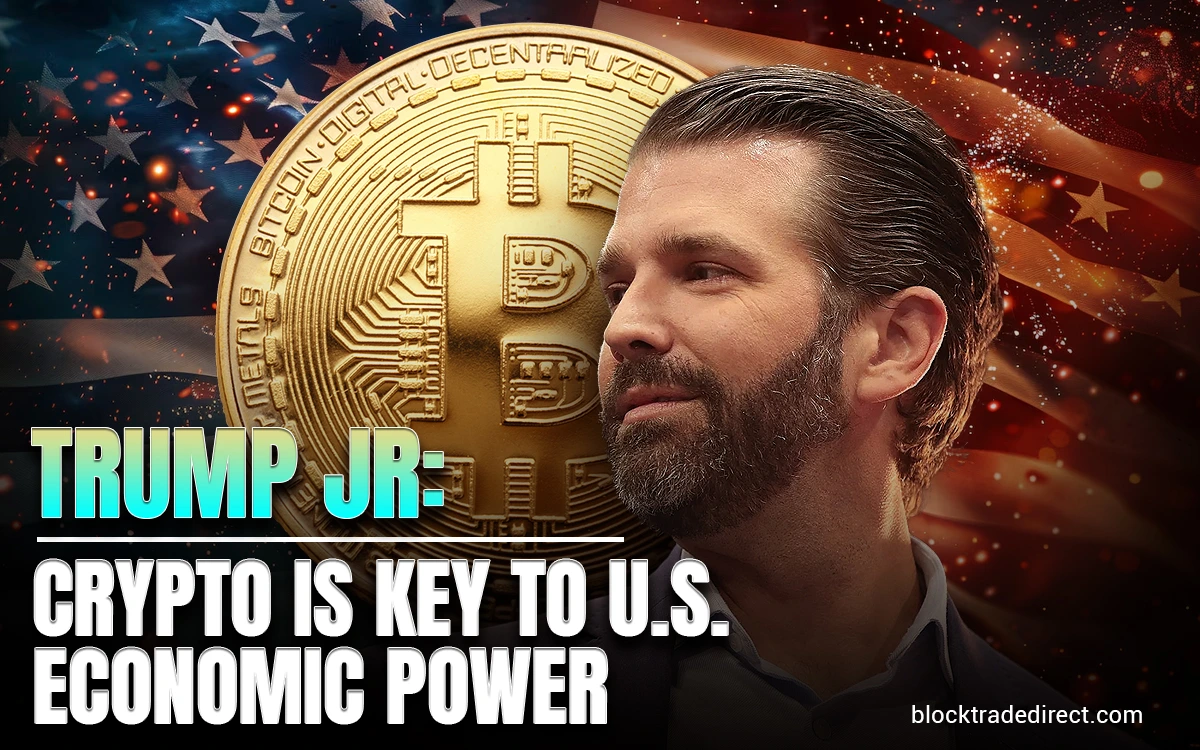
Donald Trump Jr. has said cryptocurrency is an instrument of U.S. economic superiority, which maintains the United States' financial superiority in the world. He stated this at a recent crypto-focussed conference, urging for pro-crypto policies as he believes embracing the digital asset space would help maintain America's power in the world economy.
These remarks are happening at a time when the U.S. has been losing to other nations with their development of central bank-issued digital currencies and alternative monetary systems.
Trump Jr. presented Bitcoin and other digital assets as strategic tools that could:
"Crypto represents the next phase of American financial leadership," Trump Jr. said, urging regulators to adopt policies that encourage blockchain growth rather than stifle it.
The comments suggest a deeper movement in the political space of Donald Trump, as crypto increasingly represents a key economic and political question.
Given Donald Trump Sr.'s significant influence on the 2024 campaign, it has been hypothesized that crypto-friendly policies might feature as part of the campaign's economic platform.
Main points to be gleaned from the remarks of Trump Jr.:
While the U.S. has led the traditional financial system for decades, rising competition from digital economies in Asia and Europe is challenging that dominance. Countries like China, Russia, and even smaller nations like El Salvador are actively integrating digital assets into their economies.
Trump Jr. believes that if the U.S. does not lead in crypto, it risks falling behind globally. He specifically warned about:
Several industry players responded well to the sentiments of Trump Jr. and termed them a pointer to an ever-growing mainstream political support of the digital asset industry. These business leaders have continued to demand
Trump Jr.'s pro-crypto stance may point to the beginning of a new era concerning how U.S. politicians approach digital assets. The approaching 2024 election could make cryptocurrency a top-tier economic and political matter, guiding policies on defining America's role in the future of finance.